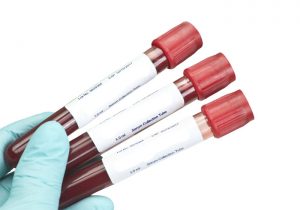
Five Things You Should Know about Herpes
ASHA answers many questions from the public about STIs, including about genital herpes. Here we offer five things to know about how to manage this common infection.
The U.S. Preventative Service Task Force (USPSTF) has advised against routine screening for herpes in adolescents, adults, and pregnant women. Only people who have symptoms or concerns (such as a partner with herpes) need to be tested according to the task force decision.
Herpes can cause sores on or near the mouth or genitals (this includes the anus, butt, and thighs). It is caused by two types of the herpes simplex virus: HSV-1 and HSV-2. The majority of oral herpes cases are caused by HSV-1 and the majority of genital herpes cases are caused by HSV-2; however, type-1 or type-2 can occur in either area.
Anyone who has ever been kissed, romantically or not, can get oral herpes. In fact, it is estimated that 50 percent of adults have oral herpes that they likely contracted as kids when they were kissed by relatives or friends. Anyone who has ever engaged in any kind of genital sex with another person can get genital herpes. The CDC estimates that one in eight people ages 14 to 49 has HSV-2—though most do not know it.
Routine testing is recommended for some STIs—like gonorrhea and chlamydia—because these infections often have no symptoms, can cause long-term damage like infertility, and can be cured as soon as they are discovered.
Herpes, however, is different. There is no cure—just treatments focused on preventing outbreaks and limiting discomfort; and research has shown that diagnosing someone with herpes who doesn’t have any symptoms won’t change their sexual behavior or prevent them from spreading it.
More importantly, the best way to test for diagnose herpes is through swabbing sores during an outbreak. Without sores, providers must rely on blood tests, which are not always that helpful. For example, the blood tests for HSV-2 are known to return a high rate of false positives which can cause unneeded stress for individuals and strife in relationships. Similarly, the test for HSV-1 can detect the virus but can’t indicate the site of the infection (which could be oral, genital, or anal) or when you got infected. Such incomplete information can also cause stress and strife and doesn’t help with treatment or prevention.
With this in mind, the USPSTF found that the risks of testing people who don’t have symptoms outweigh the benefits and decided to continue recommending against routine screening in asymptomatic adolescents and adults, including pregnant people.
Herpes tests are still important for people who have symptoms such as unexplained sores/blisters on their mouth, genitals, or anus. If a current or former partner has herpes, you might also want to talk to a healthcare provider about when/if you should get tested.
Visit our Yes Means Test site to learn more about STI testing and find a provider in your area.

ASHA answers many questions from the public about STIs, including about genital herpes. Here we offer five things to know about how to manage this common infection.

A paper published ahead of print in Sexually Transmitted Diseases finds that commercial blood tests commonly used to diagnose herpes simplex virus (HSV) are frequently not reliable, especially in those with “low positive” results.

Herpes is a very common viral infection caused by herpes simplex virus (HSV). I can cause sores on the mouth or face or in the genital area. Herpes cannot be cured, but it can be treated.

Support groups provide information and allow participants to share experiences, fears, and feelings with others who are concerned about herpes.

If you are pregnant and you have genital herpes, you may be concerned about the risk of spreading the infection to your baby. Be reassured that the risk is extremely small.

About 50 percent of the adult population in the United States has oral herpes. Most people contract oral herpes when they are children by receiving a kiss from a friend or relative.
ASHA believes that all people have the right to the information and services that will help them to have optimum sexual health. We envision a time when stigma is no longer associated with sexual health and our nation is united in its belief that sexuality is a normal, healthy, and positive aspect of human life.
ABOUT
GET INVOLVED
ASHA WEBSITES
GET HELP
© 2025 American Sexual Health Association